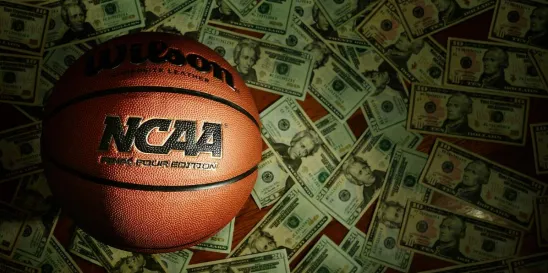NCAA President Charlie Baker penned a letter to student-athletes, asking for feedback on his proposal to allow Division I (D-I) schools to pay student-athletes directly.
In the December 19 letter, Baker emphasized that schools and student-athletes need to partner with Congress in seeking a federal law with an antitrust exemption preventing college athletes from being considered employees of the schools they attend. He encouraged student-athletes to join the conversation, stressing the importance of their voices in shaping the future of college sports.
Earlier this month, Baker proposed a new system, a significant departure from the current NCAA structure. The novel proposal centered around allowing D-I schools to directly compensate athletes through an enhanced educational trust fund and creating a new D-I football subdivision for schools that choose to participate. The proposed educational trust fund would pay at least $30,000 annually to half of the institution’s eligible student-athletes. The proposal intends to enable D-I schools to provide financial support directly to athletes, addressing concerns related to name, image, and likeness (NIL) opportunities and NIL collectives. Under the plan, Baker envisions an in-house revenue-sharing mechanism to handle NIL, reducing the role of third-party collectives.
With the NCAA facing potentially existential threats from ongoing litigation, Baker’s proposal aims to balance liberating major conference programs with avoiding a complete breakaway from the existing NCAA structure. In the letter, Baker notes that the proposed changes will enhance opportunities for all D-I student-athletes and promote gender equity, as schools must adhere to existing regulations in their athletic program investments. He emphasized the importance of flexibility for colleges and universities and for the NCAA to adapt to the evolving landscape of college sports.
However, while Baker argues that this plan enhances financial opportunities for all D-I student-athletes, critics raise questions about the impact on Title IX compliance, the potential reduction of Olympic sports, the widening gap between major conferences and others, and the potential consequences for student-athletes in non-revenue sports. Baker acknowledges that the proposed model challenges traditional notions of amateurism, aiming to offer student-athletes a fair share of the financial benefits associated with their skills and institutional value. He encourages a shift toward more flexible rules and frameworks across the NCAA that prioritize student-athletes’ well-being.
The letter also discusses the NCAA’s ongoing “endless legal challenges,” acknowledging lawsuits like Johnson v. NCAA and In Re College Athlete NIL Litigation, which collectively demand significant compensation for college athletes. Undoubtedly, Baker recognizes the significance of litigation over athlete compensation.
Baker’s letter serves as a call to action, urging student-athletes to engage in the conversation and partner with the NCAA in directing the future of college sports. It signals a significant shift in the NCAA’s approach to compensation and regulation, aiming to find a middle ground between the interests of major conferences and the overall stability D-I sports. The future of college athletics hangs in the balance, with potential consequences for student-athletes, universities, and the structure of the NCAA itself.




 />i
/>i

